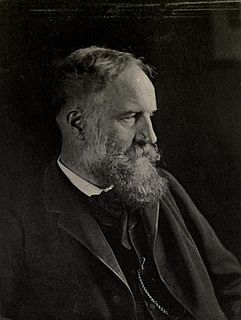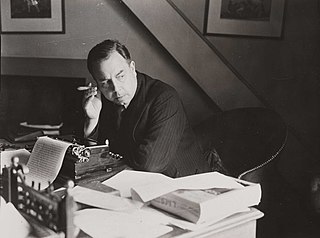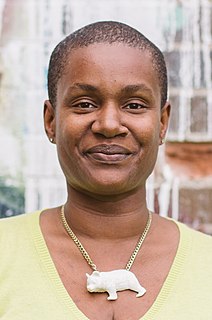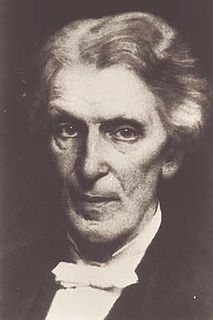A Quote by Philip Gilbert Hamerton
Few of us have been so exceptionally unfortunate as not to find, in our own age, some experienced friend who has helped us by precious counsel, never to be forgotten. We cannot render it in kind, but perhaps in the fulness of time it may become our noblest duty to aid another as we have ourselves been aided, and to transmit to him an invaluable treasure, the tradition of the intellectual life.
Related Quotes
Do not desert a friend in time of need, nor forsake him nor fail him, for friendship is the support of life. Let us then bear our burdens as the Apostle has taught (cf. Gal. 6:2): for he spoke to those whom the charity of the same one body had embraced together. If friends in prosperity help friends, why do they not also in times of adversity offer their support? Let us aid by giving counsel, let us offer our best endeavors, let us sympathize with them with all our heart.
When we sit, we open our own treasure house. Rather than do this, however, most of us first seek to find the treasures another person can provide. We calculate their value to us. When we approach relationships in this manner, we are coming as beggars, seeing the other as a source of supply. When we can enter a relationship with our treasure house already open, there is no end to the wonders we can find, both within and between ourselves and another.
But the point is, now, at this moment, or any moment, we're only cross-sections of our real selves. What we really are is the whole stretch of ourselves, all our time, and when we come to the end of this life, all those selves, all our time, will be us - the real you, the real me. And then perhaps we'll find ourselves in another time, which is only another kind of dream.
None of us like the concept of law because none of us like the restraints it puts on us. But when we understand that God has given us his law to aid us in guarding our souls, we see that the law is for our fulfillment, not for our limitation. The law reminds us that some things, some experiences, some relationships are sacred. When everything has been profaned, it is not just my freedom that has been lost- the loss is everyone's. God gave us the law to remind us of the sacredness of life, and our created legal systems only serve to remind us of the profane judgments we make.
Anxieties about ourselves endure. If our proper study is indeed the study of humankind, then it has seemed-and still seems-to many that the study is dangerous. Perhaps we shall find out that we were not what we took ourselves to be. But if the historical development of science has indeed sometimes pricked our vanity, it has not plunged us into an abyss of immorality. Arguably, it has liberated us from misconceptions, and thereby aided us in our moral progress.
Life is short and tedious, and is wholly spent in wishing; we trust to find rest and enjoyment at some future time, often at an age when our best blessings, youth and health, have already left us. When at last I that time has arrived, it surprises us in the midst of fresh desires; we have got no farther when we are attacked by a fever which kills us; if we had been cured, it would only have been to give us more time for other desires.
[Grace] is given not to make us something other than ourselves but to make us radically ourselves. Grace is given not to implant in us a foreign wisdom but to make us alive to the wisdom that was born with us in our mother?s womb. Grace is given not to lead us into another identity but to reconnect us to the beauty of our deepest identity. And grace is given not that we might find some exterior source of strength but that we might be established again in the deep inner security of our being and in learning to lose ourselves in love for one another to truly find ourselves.
We can glut ourselves with how-to-raise children information . . . strive to become more mature and aware but none of this will spare us from the . . . inevitability that some of the time we are going to fail our children. Because there is a big gap between knowing and doing. Because mature, aware people are imperfect too. Or because some current event in our life may so absorb or depress us that when our children need us we cannot come through.
We live in an age disturbed, confused, bewildered, afraid of its own forces, in search not merely of its road but even of its direction. There are many voices of counsel, but few voices of vision; there is much excitement and feverish activity, but little concert of thoughtful purpose. We are distressed by our own ungoverned, undirected energies and do many things, but nothing long. It is our duty to find ourselves.
How can we feel our need of His help, or our dependence on Him, or our debt to Him, or the nature of His gift to us, unless we know ourselves.... This is why many in this age (and in every age) become infidels, heretics, schismatics, disloyal despisers of the Church.... They have never had experience of His power and love, because they have never known their own weakness and need.
Good friends find pleasure in one another's company. Let us know pleasure in the company of our best Friend, a Friend who can do everything for us, a friend who loves us beyond measure. Here in the Blessed Sacrament we can talk to him straight from the heart. We can open our souls to him, tell him what we need, beg him for powerful graces. We are perfectly free to approach the King of the universe with full confidence and without fear.
We cannot embrace His cross, and yet refuse our own. We cannot raise the cup of His remembrance to our lips, without a secret pledge to Him, to one another, to the great company of the faithful in every age that we, too, hold ourselves at God's disposal, that we will ask nothing on our own account, that we will pass simply into the Divine hand to take us whither it will.
If a friend is the one who summons us to our best, then is not Jesus Christ our best friend, and should we not think of the Communion as one of His chief appeals to us to be our best? The Lord's Supper looks not back to our past with a critical eye, but to our future, with a hopeful one. The Master appeals from what we have been to what we may be. He bids us come, not because we are better than we have been, but because He wants us to be. To stay away because our hearts are cold is to refuse to go to the fire till we are warm.








































